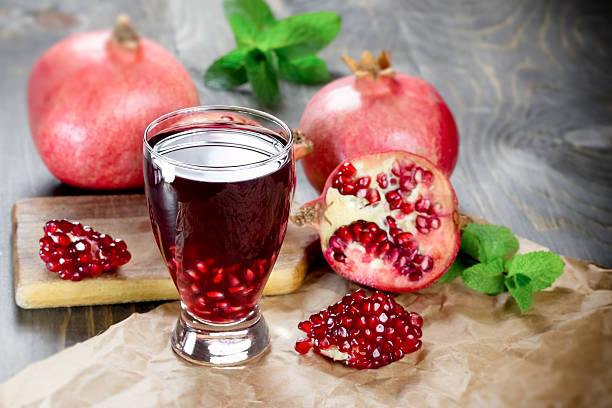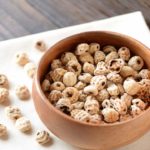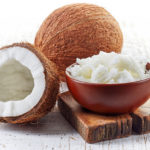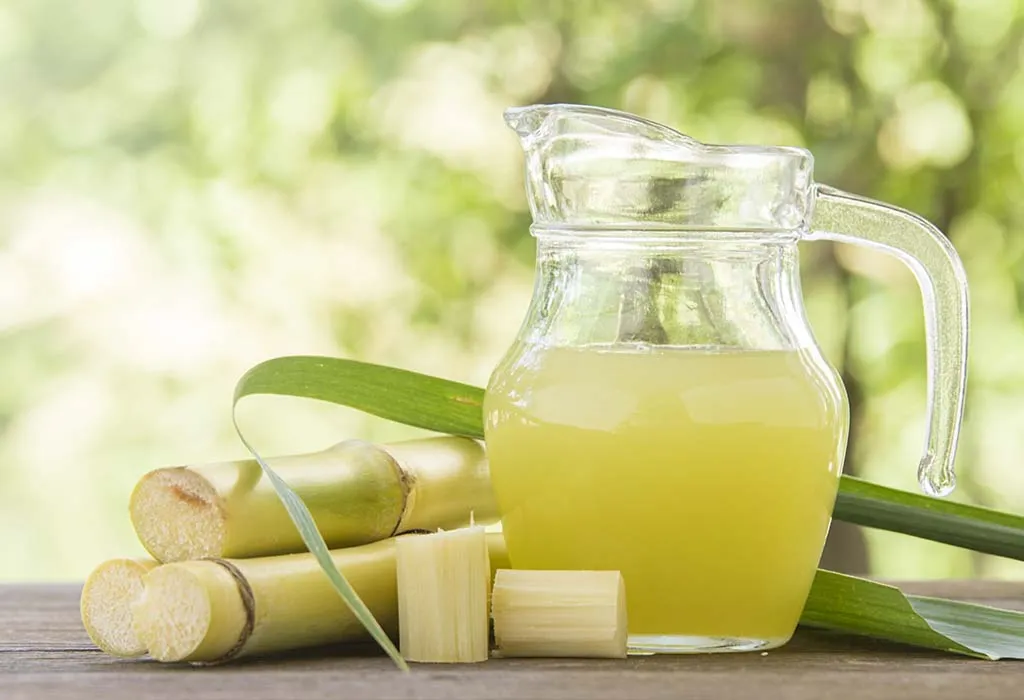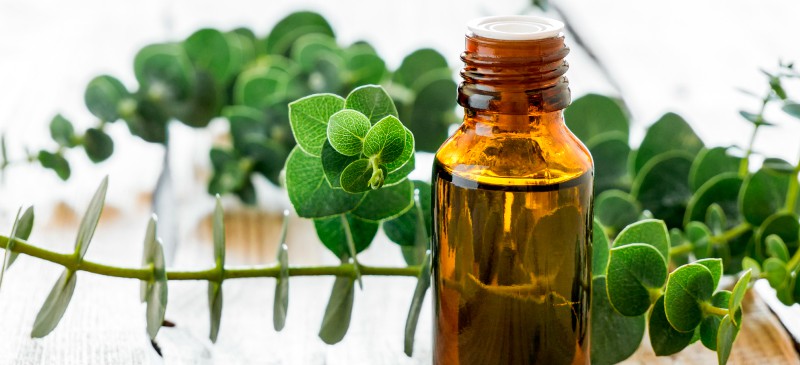Health Benefits of Eating Pomegranate
The ability to enrich the blood and also reduce intestinal inflammation sums up the benefits of eating pomegranate. Pomegranate is not only a food for the intestine, it is also an object of fascination as well as its color.
Pomegranate cultivation were pioneered by the Arabs who also made it a symbol of the Moslem Kingdom of Granada of the southern Iberian Peninsula.
Wise king Solomon also compared his beloved’s cheek to the pomegranate thousands of years ago. It seemed so because the tiny beads of the fruit is full of precious juice and quite brilliant like drops of blood or rubies.
Some insights about Pomegranate
Common names: Chinese apple, Dalima, Grenade
French: Grenade
Spanish: Granada
German: Granatapfel
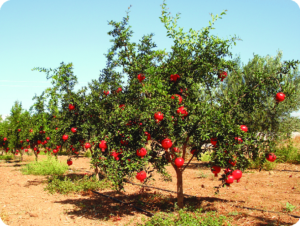
The pomegranate tree fruit (‘Punica granatum’ L.), belongs to the botanical family Punicaceae which reaches 4 m in height. The fruit is made up of several sacs filled with somewhat juicy pink or reddish pulp. Each of the sacs holds a seed.
The pomegranate is native to the Near East but gradually spread throughout the Mediterranean. However, it is grown in Turkey, Iran and other Mediterranean countries. It is also cultivated in some hot regions on the continent of America like California and Brazil.
SEE ALSO: Benefits of Eating Artichoke
Pomegranate Composition (Nutritional Values)
Pomegranate composition per 100 grams of its edible portion.
Energy = 68.0 kcal = 283 kj
Fiber = 0.600 g
Carbohydrates = 16.6 g
Protein = 0.950 g
Vitamin A = ____
Vitamin B1 = 0.030 mg
Vitamin B2 = 0.030 mg
Vitamin B3 (Niacin) = 0.300 mg NE
Vitamin B6 = 0.105 mg
Folate = 6.00 μg
Vitamin B12 = ____
Vitamin C = 6.10 mg
Vitamin E = 0.550 mg ∝-TE
Calcium = 3.00 mg
Phosphorus = 8.00 mg
Iron = 0.300 mg
Magnesium = 3.00 mg
Potassium = 259 mg
Zinc = 0.120 mg
Saturated Fat = 0.038 g
Total Fat = 0.300 g
Cholesterol = _____
Sodium = 3.00 mg
This is based on percentage (%) daily value on a 2,000 calorie diet as provided by 100 grams of pomegranate.
YOU MAY LIKE: Winter Savory
The following is the percentage composition of pomegranate
Fiber = 0.600%
Minerals = 0.610%
Fat = 0.300%
Carbohydrates = 16.6%
Protein = 0.950%
Water = 81.0%
Properties of Pomegranate
The pomegranate is highly rich in carbohydrates which is greater than most other fruits: 15.6%. Pomegranate contains protein close to 1% while fat content is less than 0.3% of the weight of pomegranate.
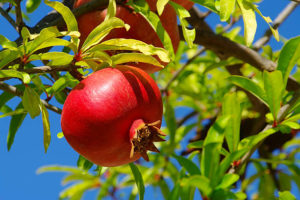
It is also rich in vitamins (C, E and B2) and also contains significant amounts of B1, B2, and B3 (niacin). However, it contains no beta-carotene (provitamin A). There is presence of minerals; having copper, potassium and iron in abundance.
The following are the non-nutritive components that are present in pomegranate.
- Citric acid
- Tannins
- Anthocyanins
- Pelletierine
Citric acid
This acid and other organic acids make ready the pleasant bittersweet taste that the pomegranate has and also a part of its medicinal effects on the intestine. Therefore, one of the benefits of eating pomegranate is the restoration of the intestinal bacteria flora.
Tannins
Although in small amounts, they are much more prevalent in the rind of the fruit which separate sacs of seeds. Health benefits of eating pomegranate in this regard is its astringent and anti-inflammatory effect on digestive tract mucosa.
Anthocyanins
These are the bluish or reddish pigments of vegetable that belongs to the flavonoid group and act as anti-inflammatory substances in the digestive tract. Another one of the health benefits of eating pomegranate is because its a potent antioxidant within the cell thereby stopping ageing process and also cancerous degeneration.
In effect, anthyocyanins in pomegranate offer a great deal of health benefits. Theses pigments also act as antiseptics and they diuretic as well.
Pelletierine
The action of pelletierine brings about so many benefits of eating pomegranate because it an effective vermifuge which means this alkaloid is able to expulse intestinal parasites.
The alkaloid is primarily found in the root bark of the tree. The membrane and the rind also hold this alkaloid except the sacs of the seed.
READ ALSO: Benefits of eating peanut
In essence, among the benefits of eating pomegranate are:
- Astringent effect
- Anti-inflammatory
- Vermifuge effects
- Depurant
- Remineralizering effects
- Alkalizing effects
Indications with regards to benefits of eating pomegranate
The use of pomegranate is indicated in the following cases.
- Excess stomach acid
- Intestinal parasites
- Intestinal disorders
- Iron deficiency anemia
- Hypertension
- Arteriosclerosis
- Metabolic disorders
Excess stomach acid
The action of its astringent effect helps in reducing the production of gastric juice and also counters inflammation especially in an irritated stomach.
Intestine Parasites
Intestinal parasites such as tapeworm or tenia is dealt with especially when an intensive vermifuge effect it required. The maceration of the bark which is quite bitter or the pomegranate inner walls may be employed in this regard.
Intestinal disorders
Some of the benefits of eating pomegranate also include the treatment of diarrhea which may be caused by gastroenteritis or even colitis. The action of its astringent and anti-inflammatory properties on the digestive tract provides the needed treatment.
In the cases of flatulence or intestinal cramp, eating pomegranate offers awesome benefits.
Iron deficiency anemia
The pomegranate holds a certain amounts of copper which seem be to in abundance (70 ug/100 g). This trace element proffers iron absorption.
Since pomegranate is highly rich in potassium and contain no sodium, it is quite appropriate for individuals suffering from high blood pressure. It is noteworthy that pomegranate helps avoid excessive numbers of diastolic and systolic pressure. Since pomegranate offer this sort of benefits, it is therefore recommended for those that are hypertensive.
Arteriosclerosis
Pomegranates are quite rich in antioxidant vitamins such as vitamins C and E and also contain flavonoids with which they are capable to halt arterial ageing processes. In cases of reduced arterial blood flow, it is recommended. Among the benefits of eating pomegranate is the preventive action on heart attack and cardiac health, generally.
Metabolic disorders
Pomegranate are good for gout cases, and obesity as well. This is because of its depurant and alkalizing effects.
Preparing a Pomegranate
- Split the fruit in half
- Using a spoon; tap the rind with the bottom so as to release the sacs
- Remove the membrane fragments which must have come out with the sacs. You can add honey if you wish and eat it using a spoon.
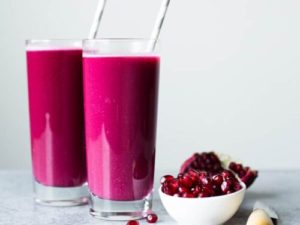
Other Preparing and Use of Pomegranate
- Juice: The pomegranate juice is such a refreshing one. With a household juice it can extracted easily. According to Medical News Today, the juice is capable of helping to stop prostate cancer cells.
- Natural: it is easy to store after harvest. Off the tree, it ripens easily however with small effect on the nutritive properties. It can last up to six months if stored in a cool dry place.
- Grenadine: To get this syrup, you cook pomegranate with sugar. It can also be stored for months. It can be used to flavor fruit salads or as a beverage and diluted with water.
The hard remains of pomegranate in the mouth is just indigestible and therefore should not be swallowed.
READ MORE
Foods to help with Constipation

A graduate of Computer Science and Information Management Technology. Diploma – Caregiving, Certificates – Dementia and Diabetes Awareness and Management. A researcher, blogger, songwriter, singer and acoustic guitarist. Born in an environment where natural talents such as healing are imparted at our natural birth. This natural talents of healing is the result of our genetic inheritance and the training from family environment.







